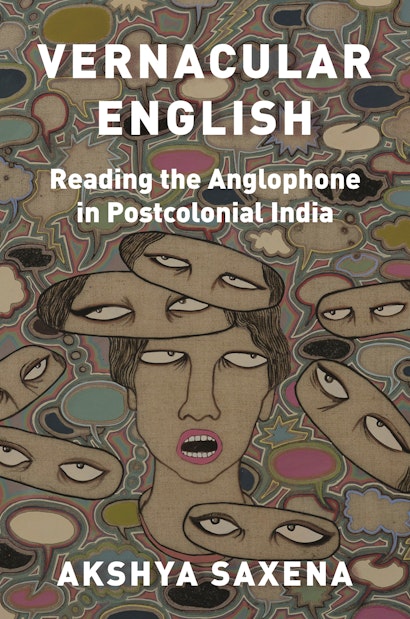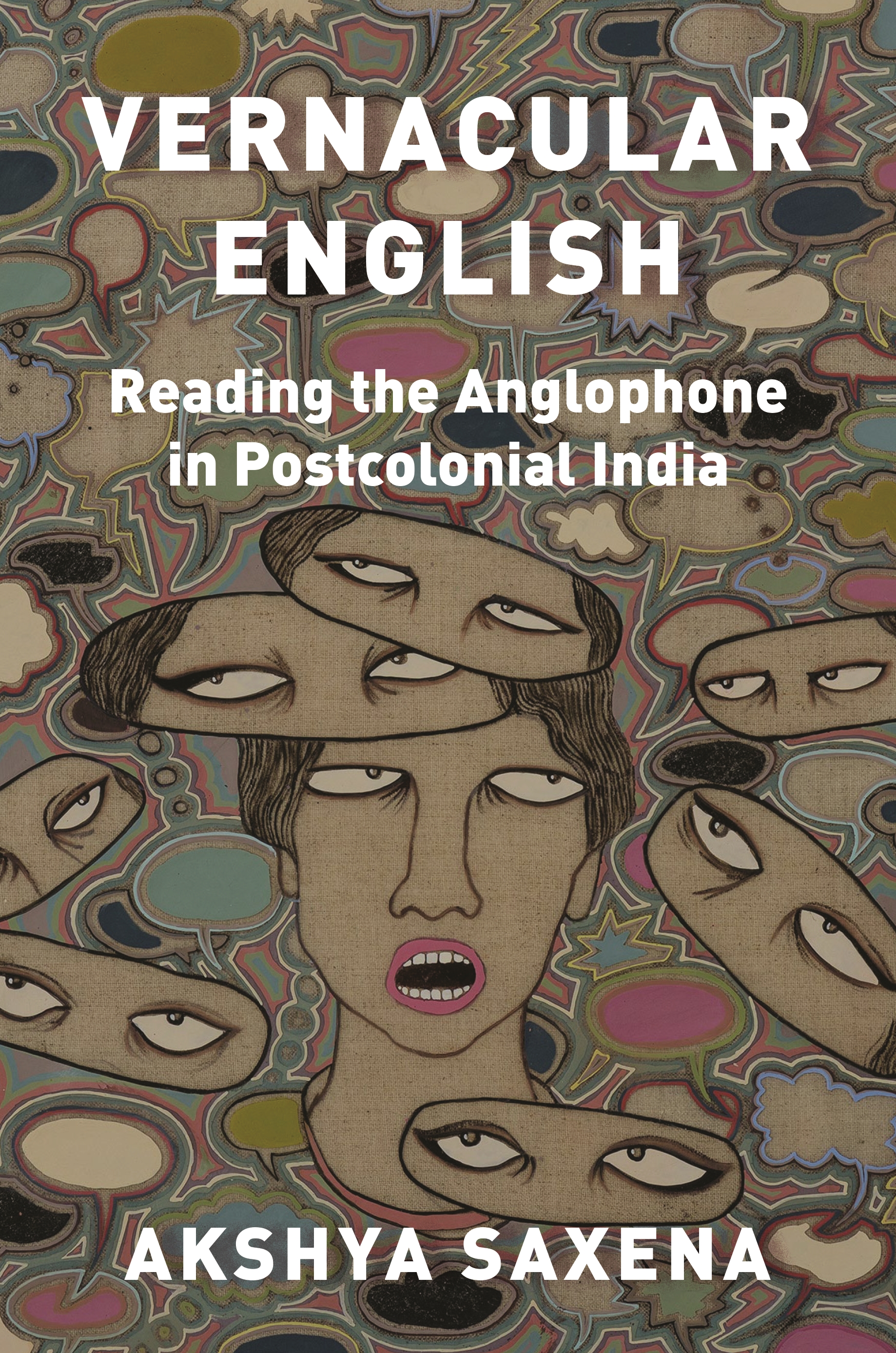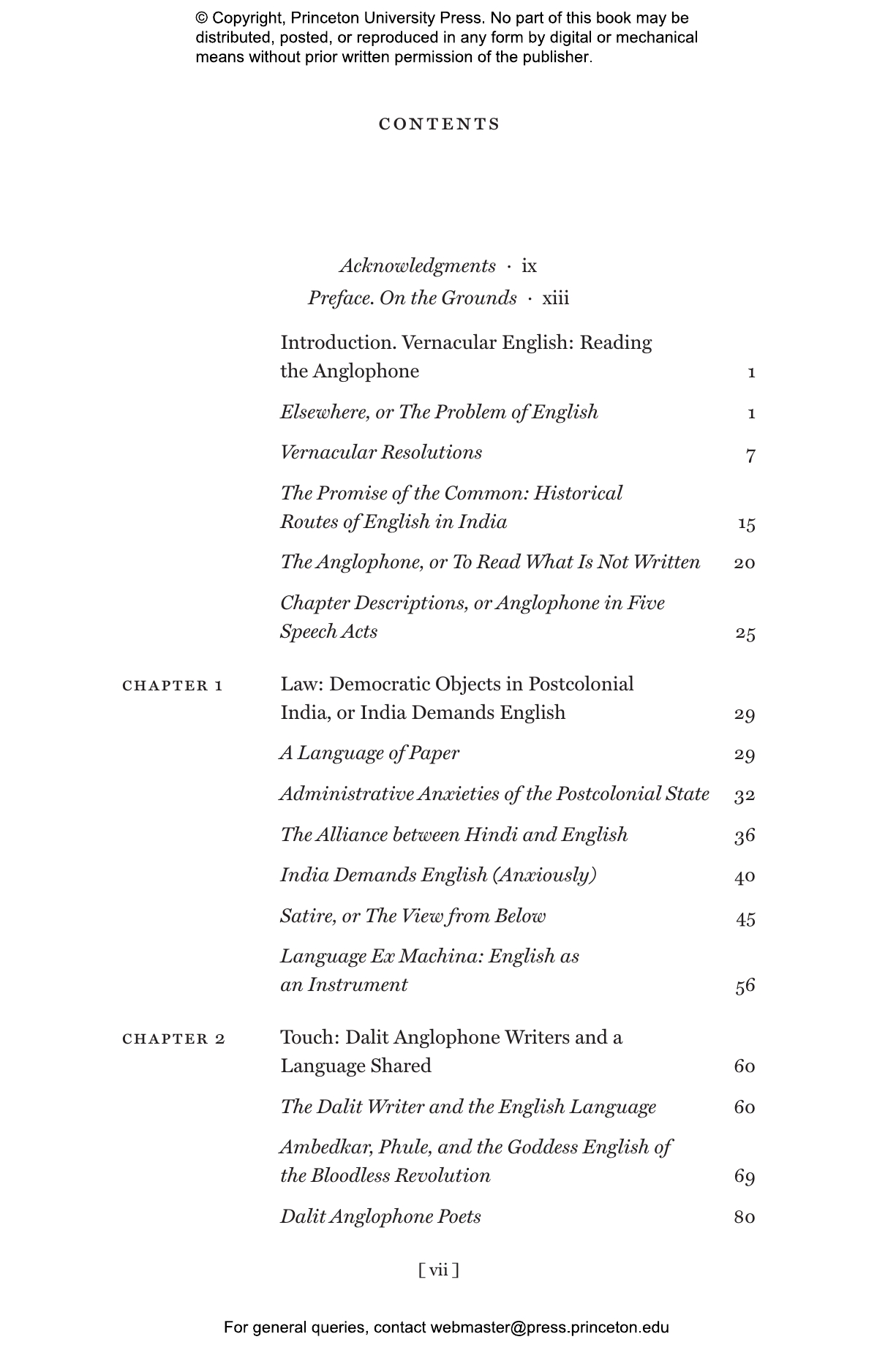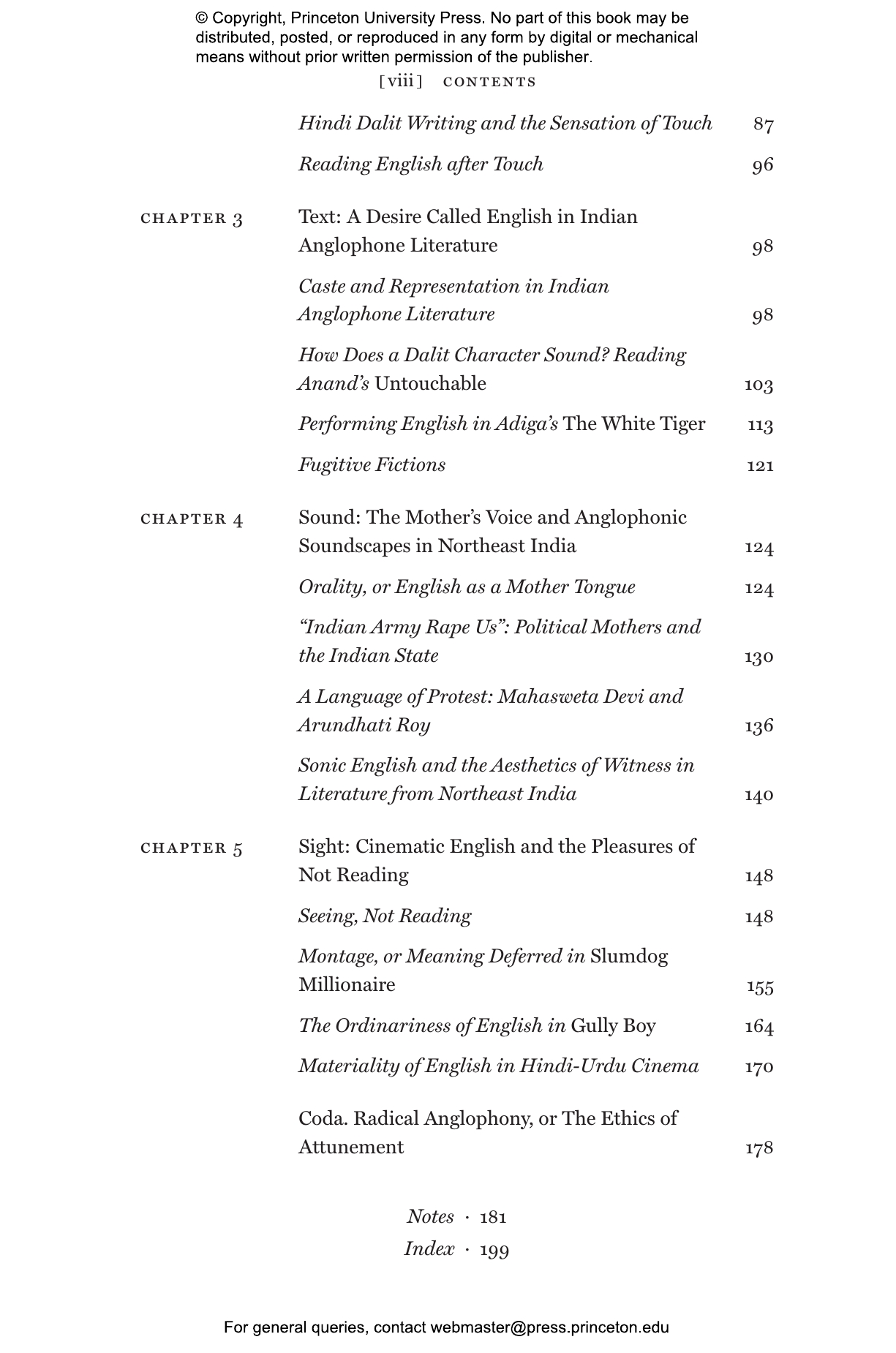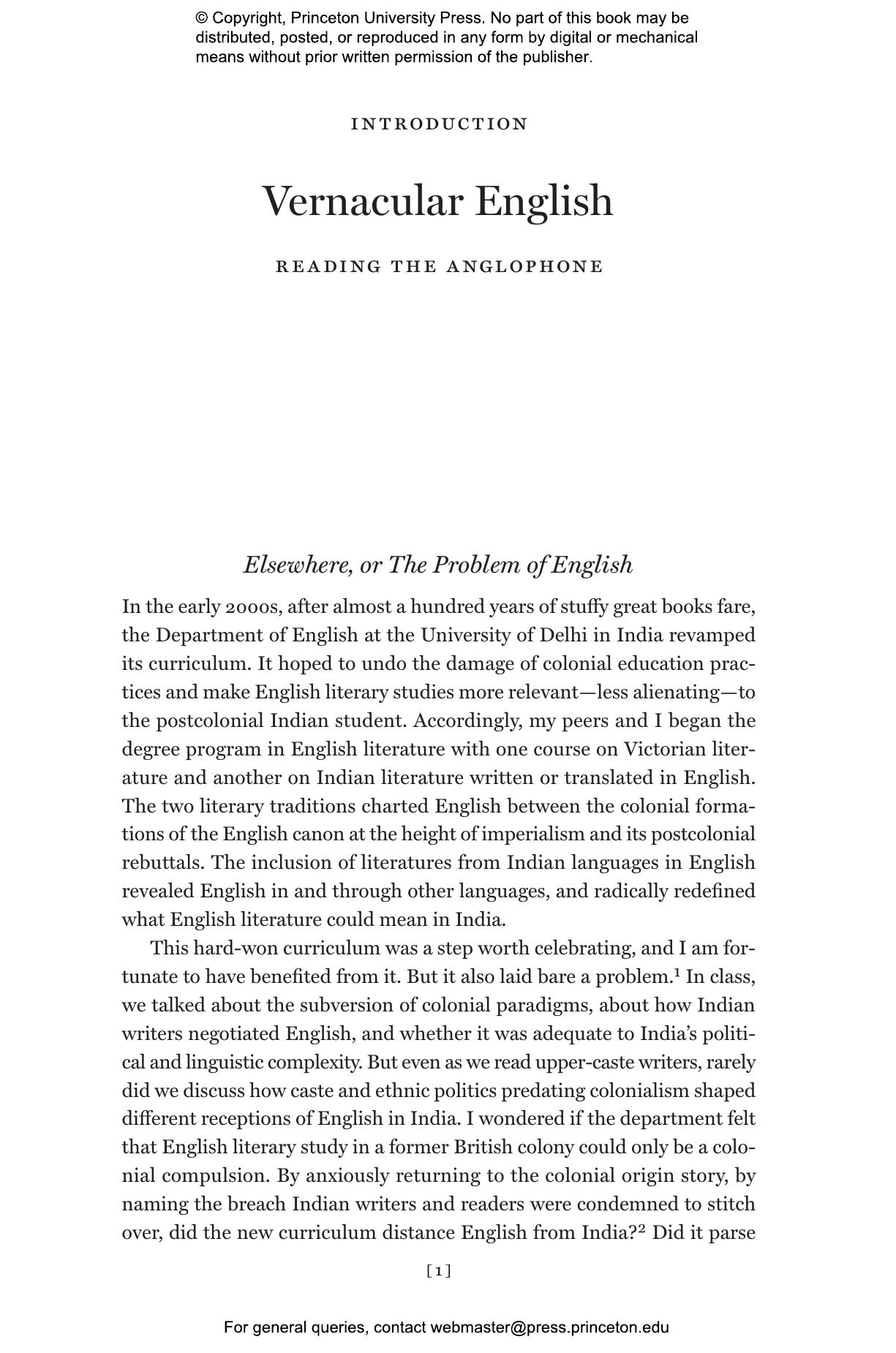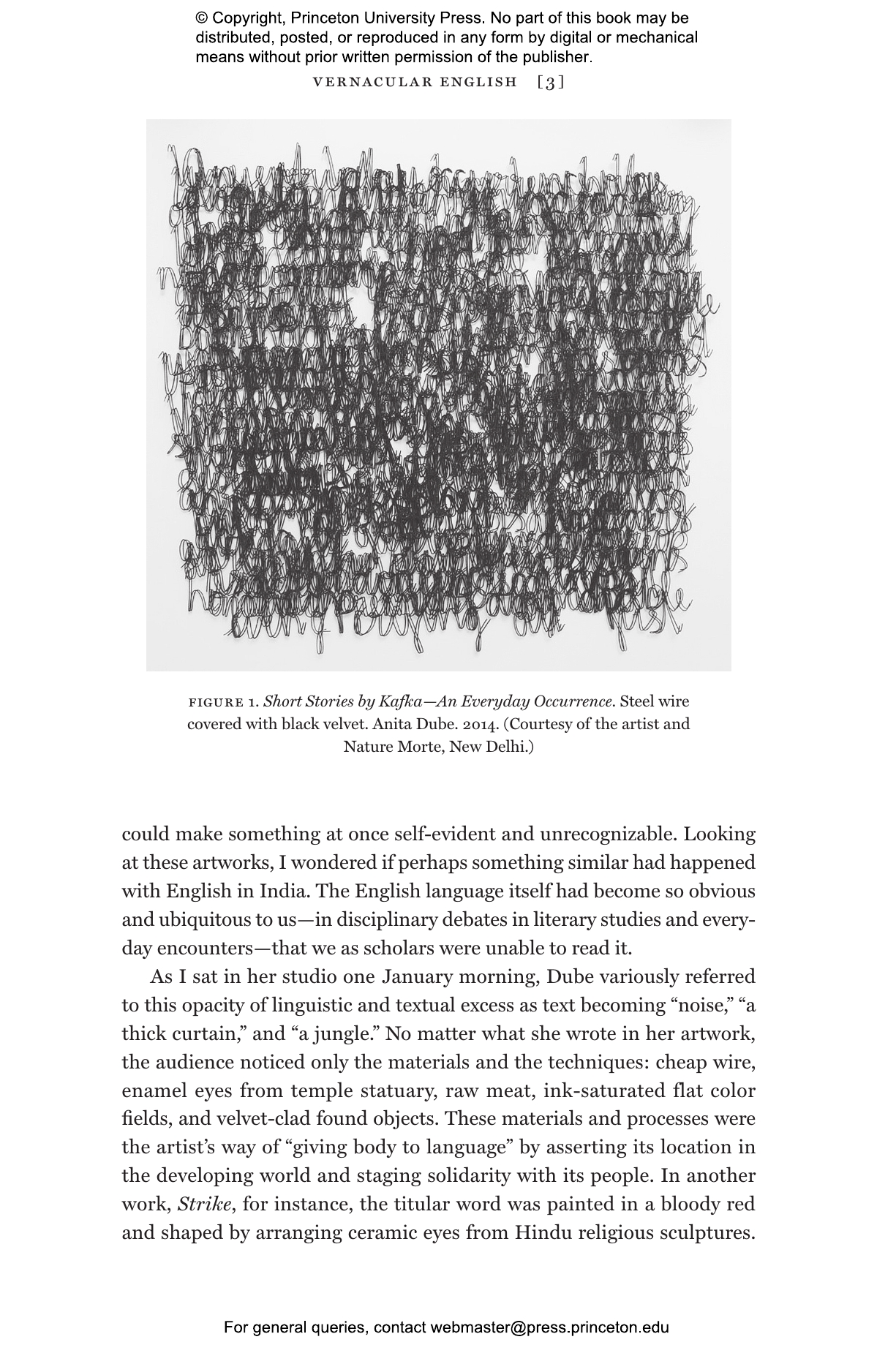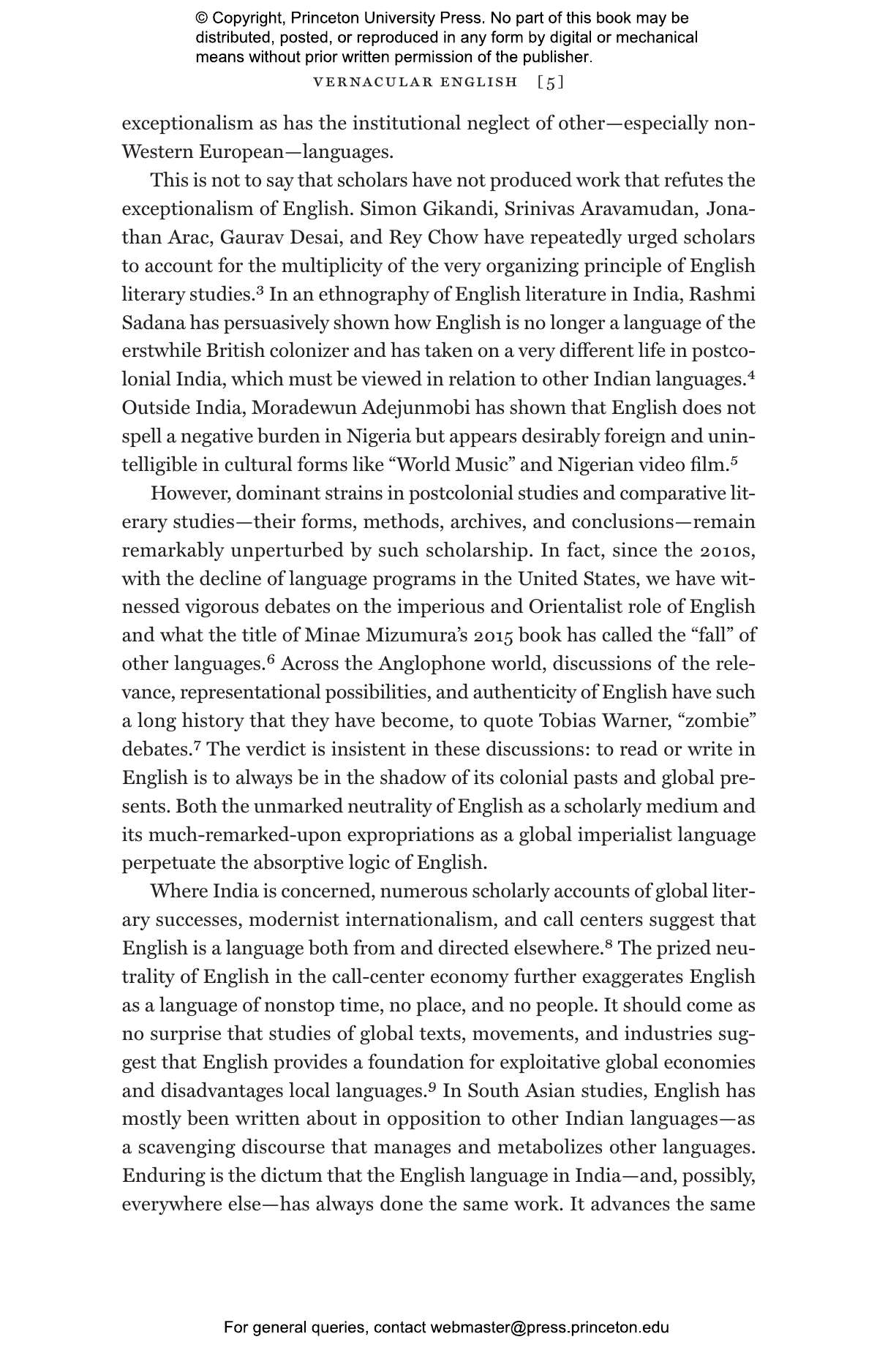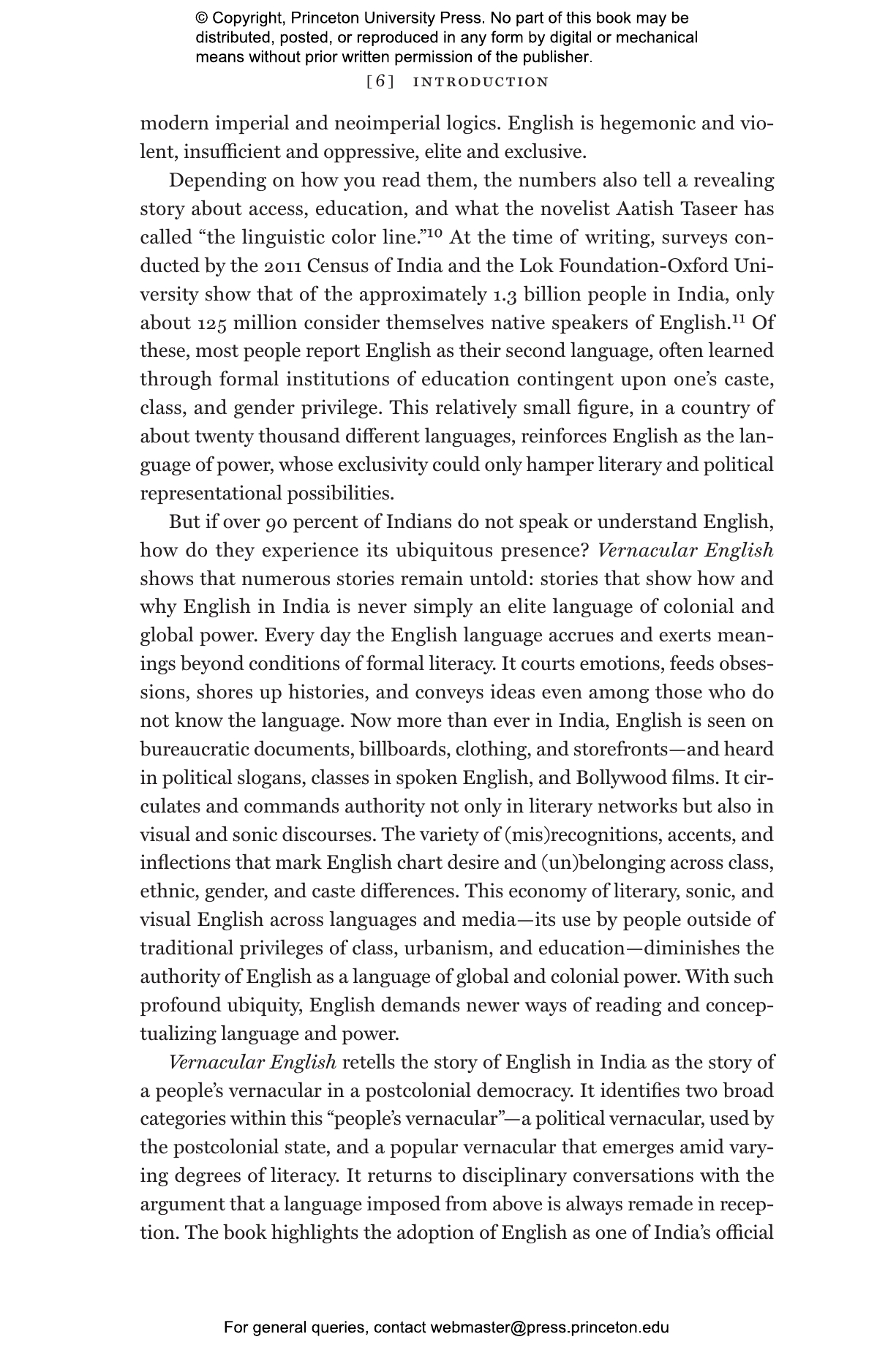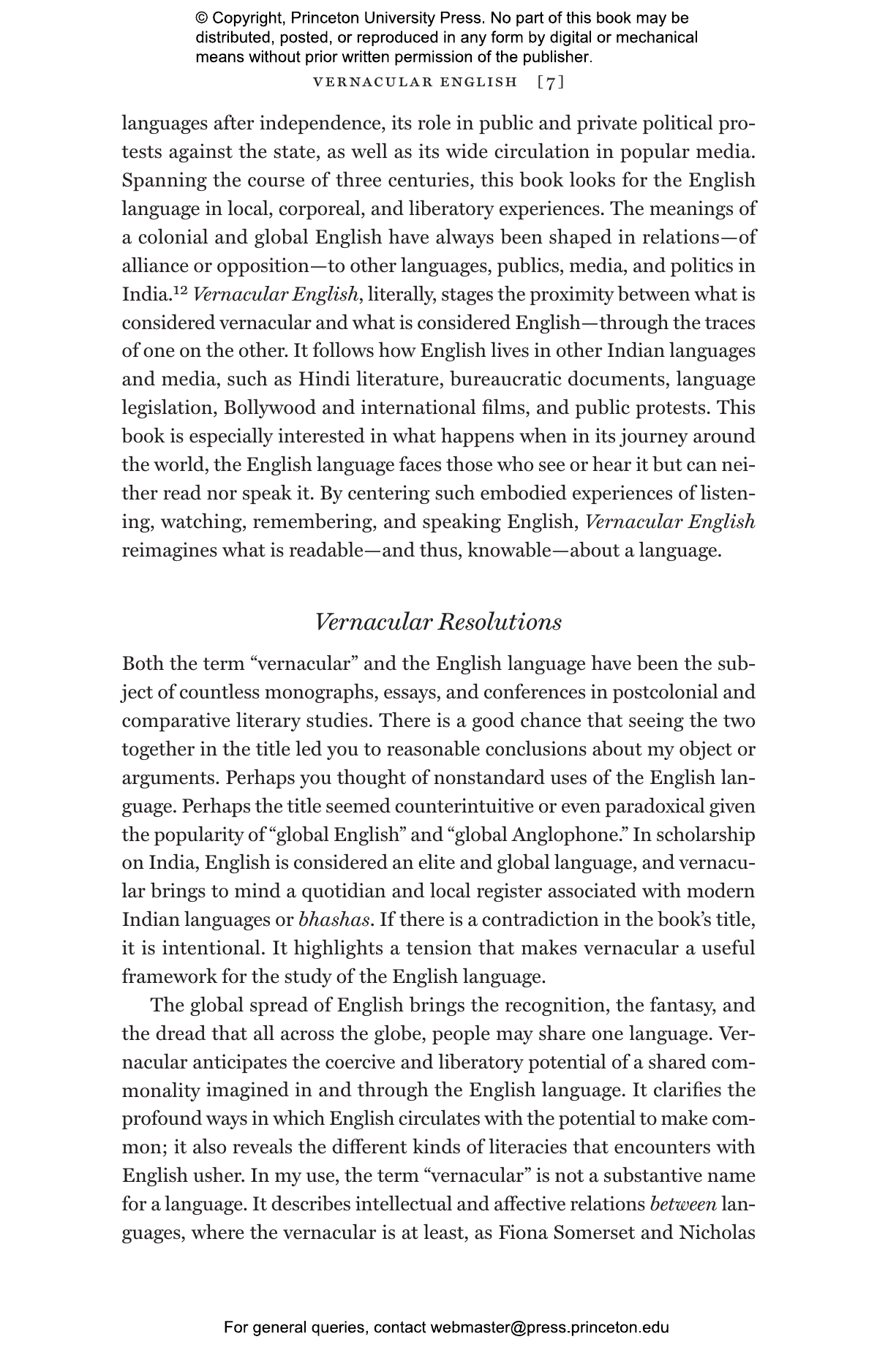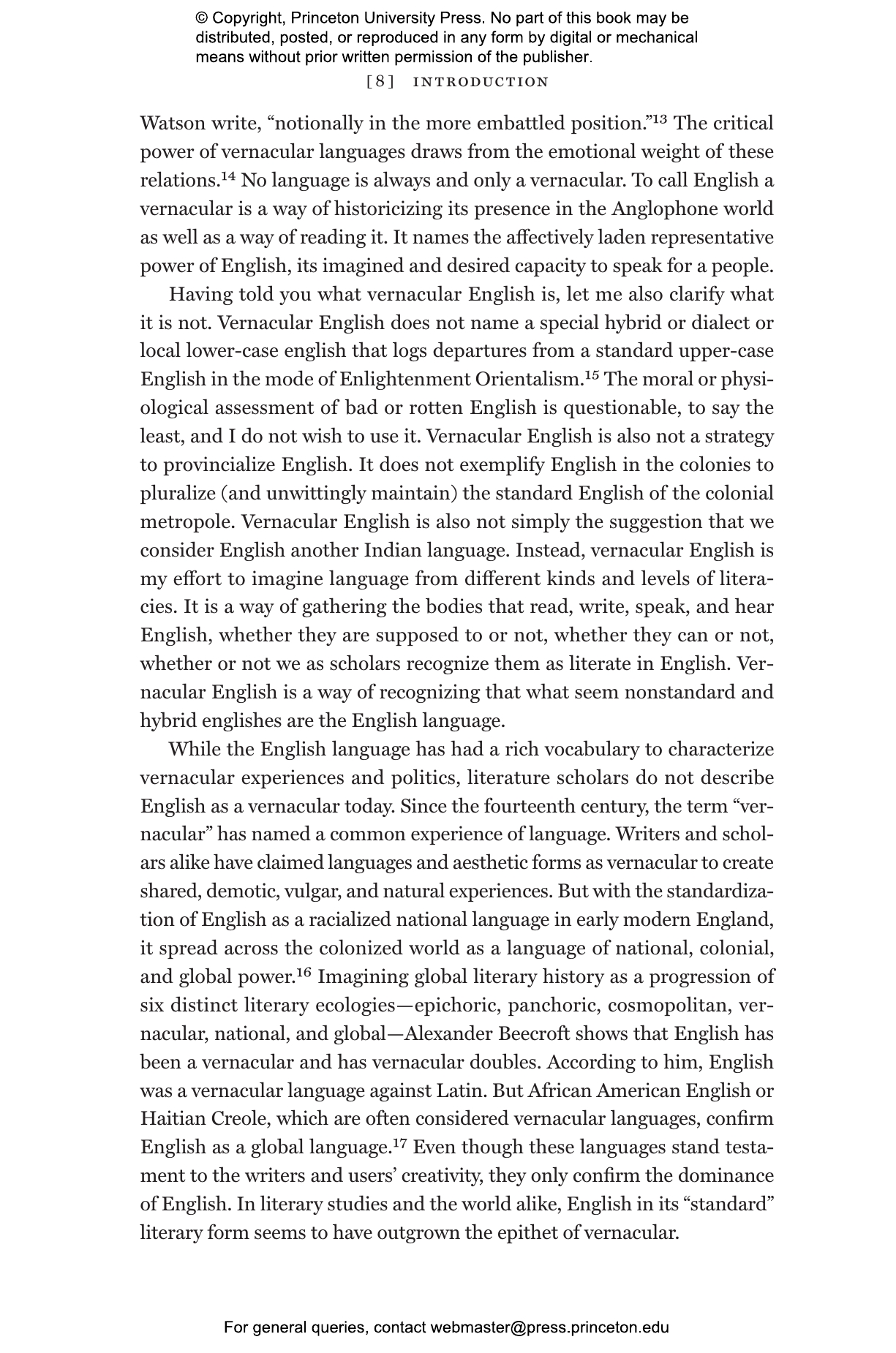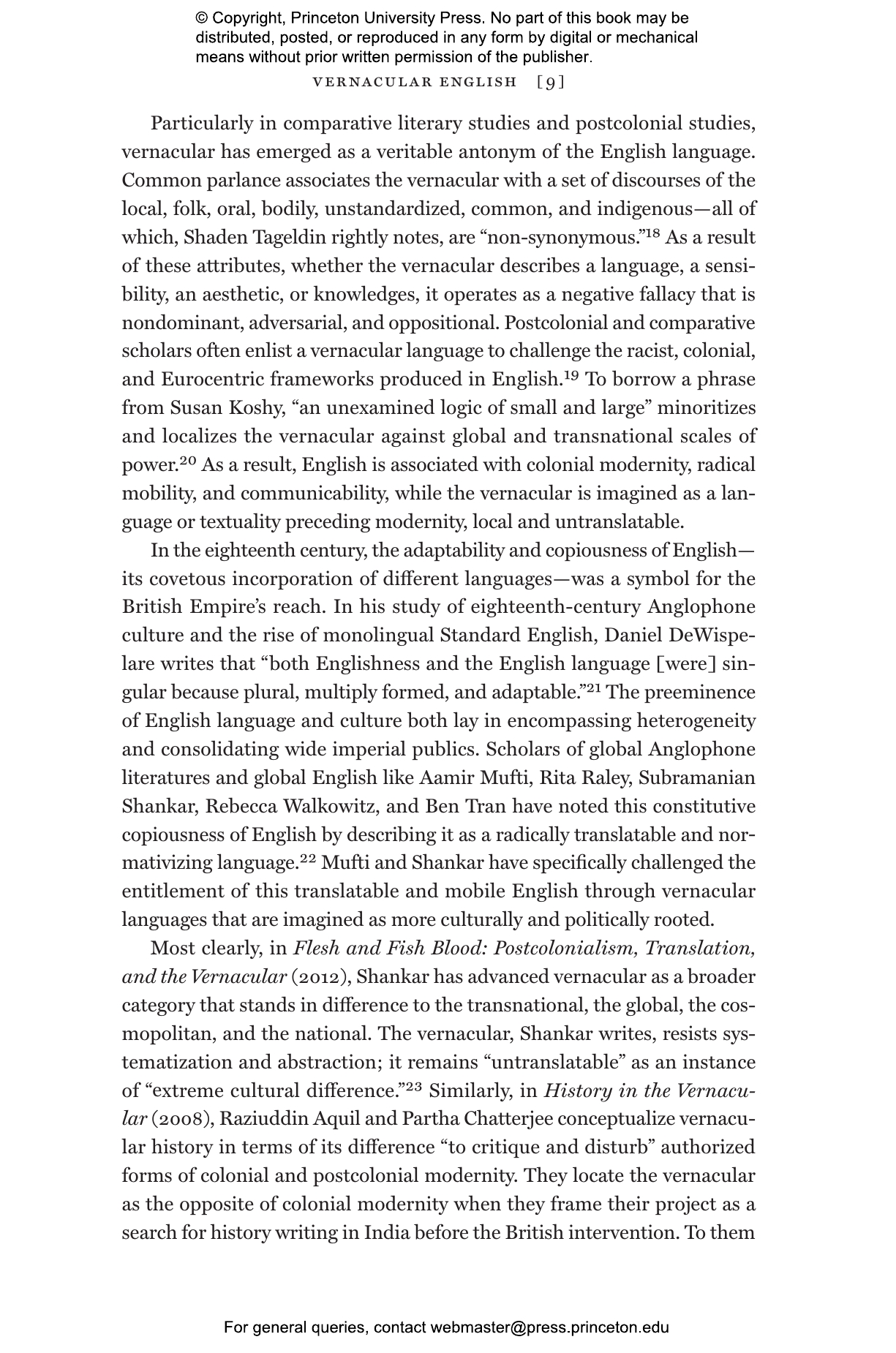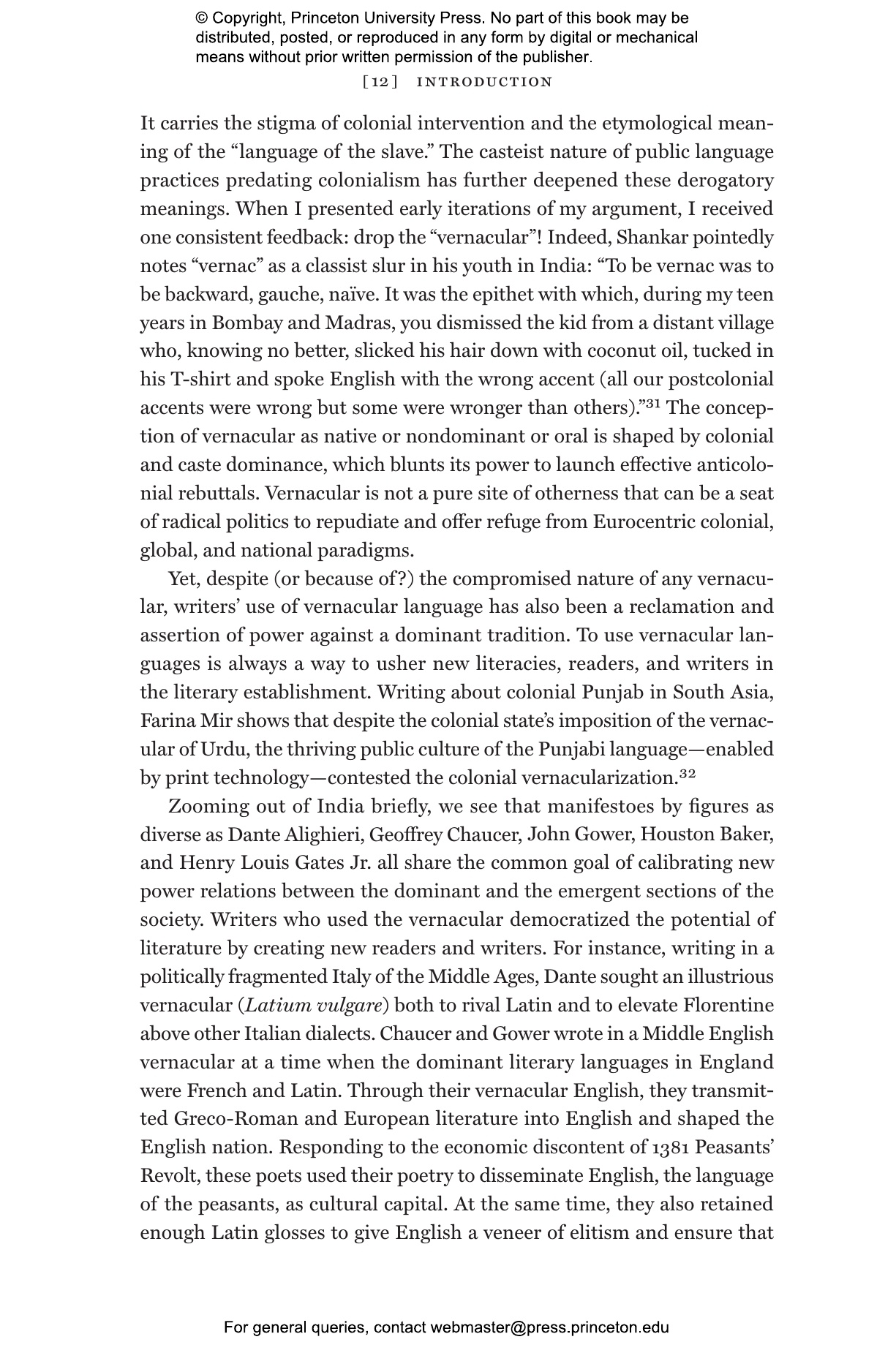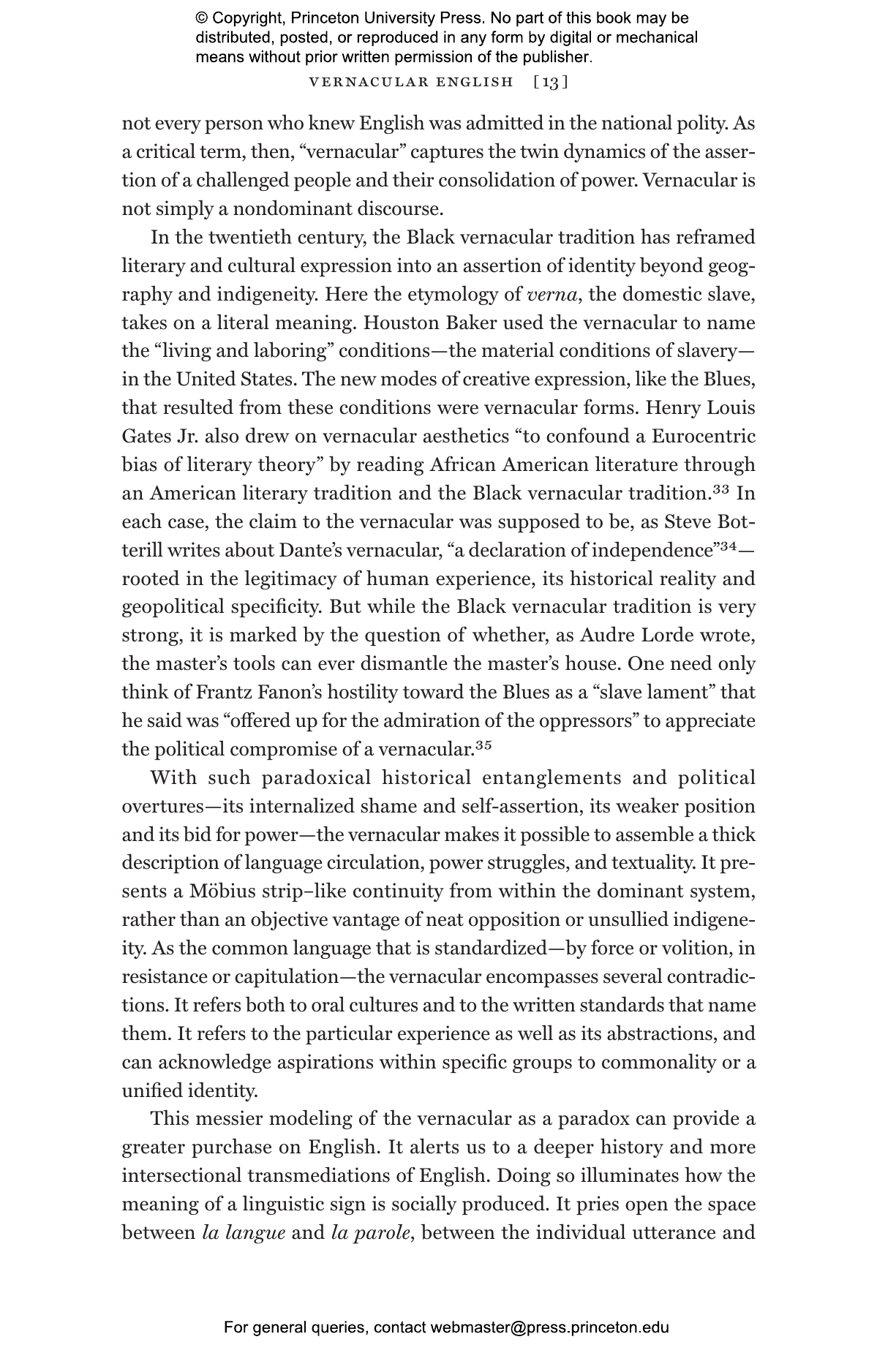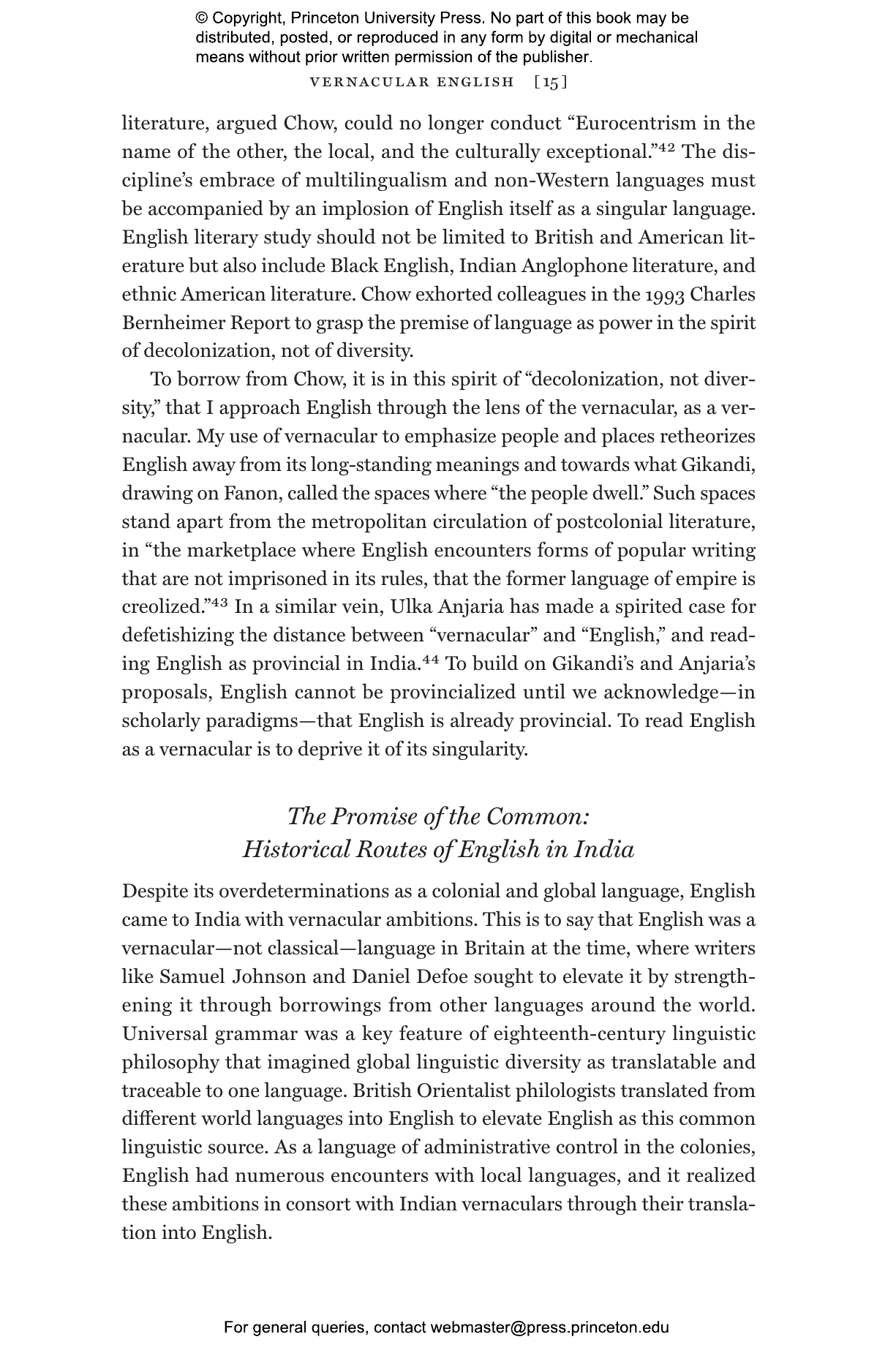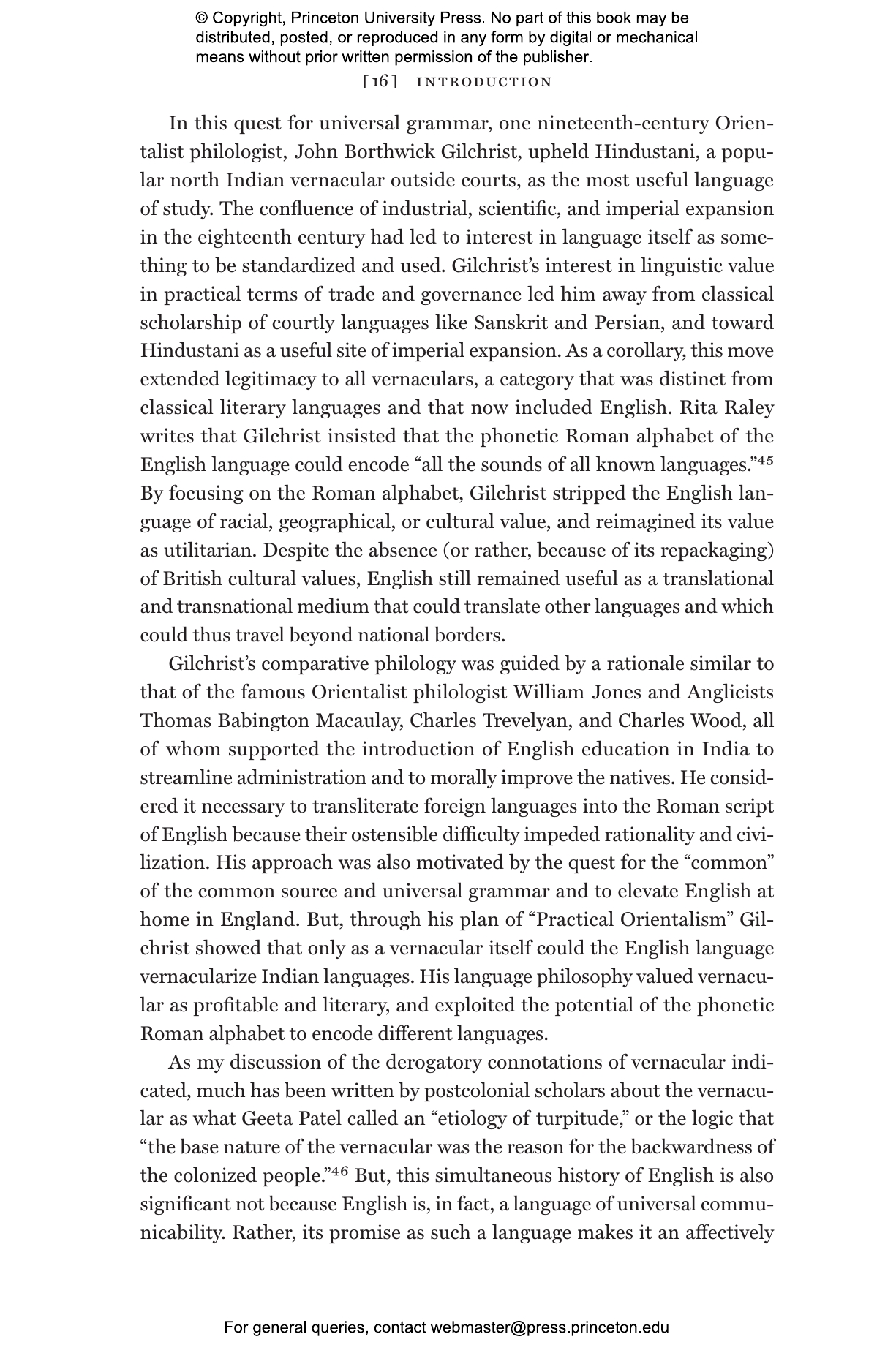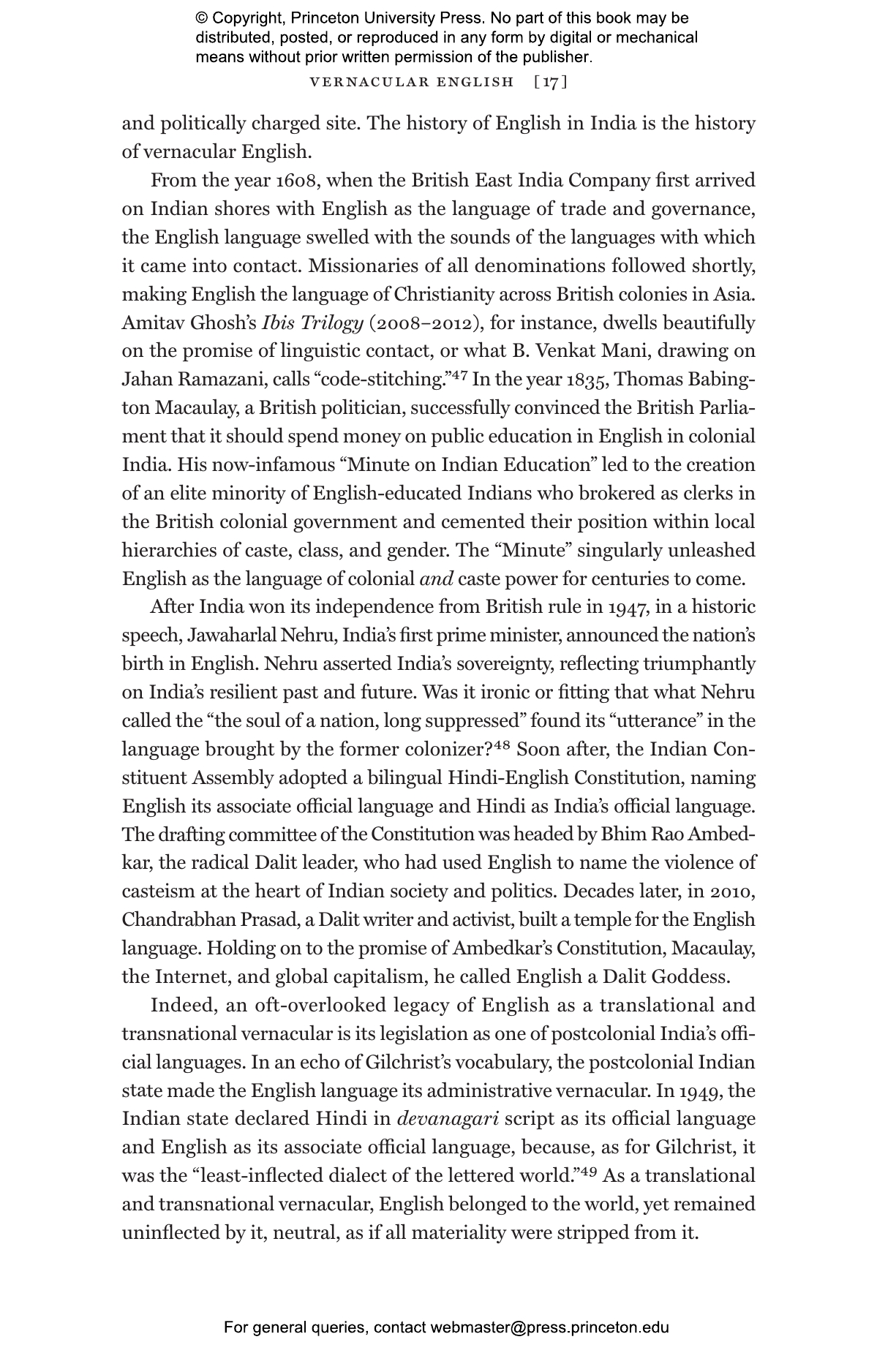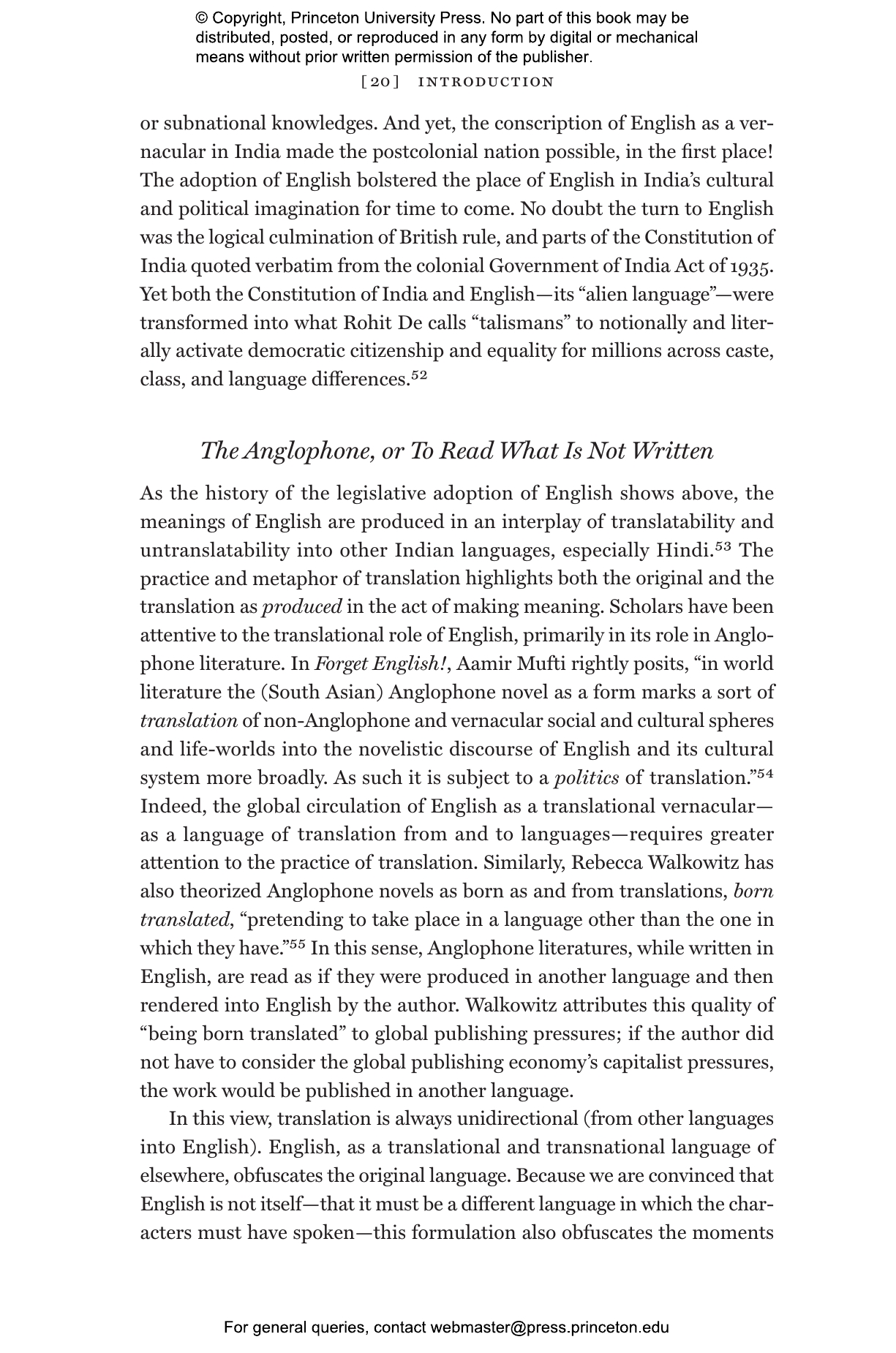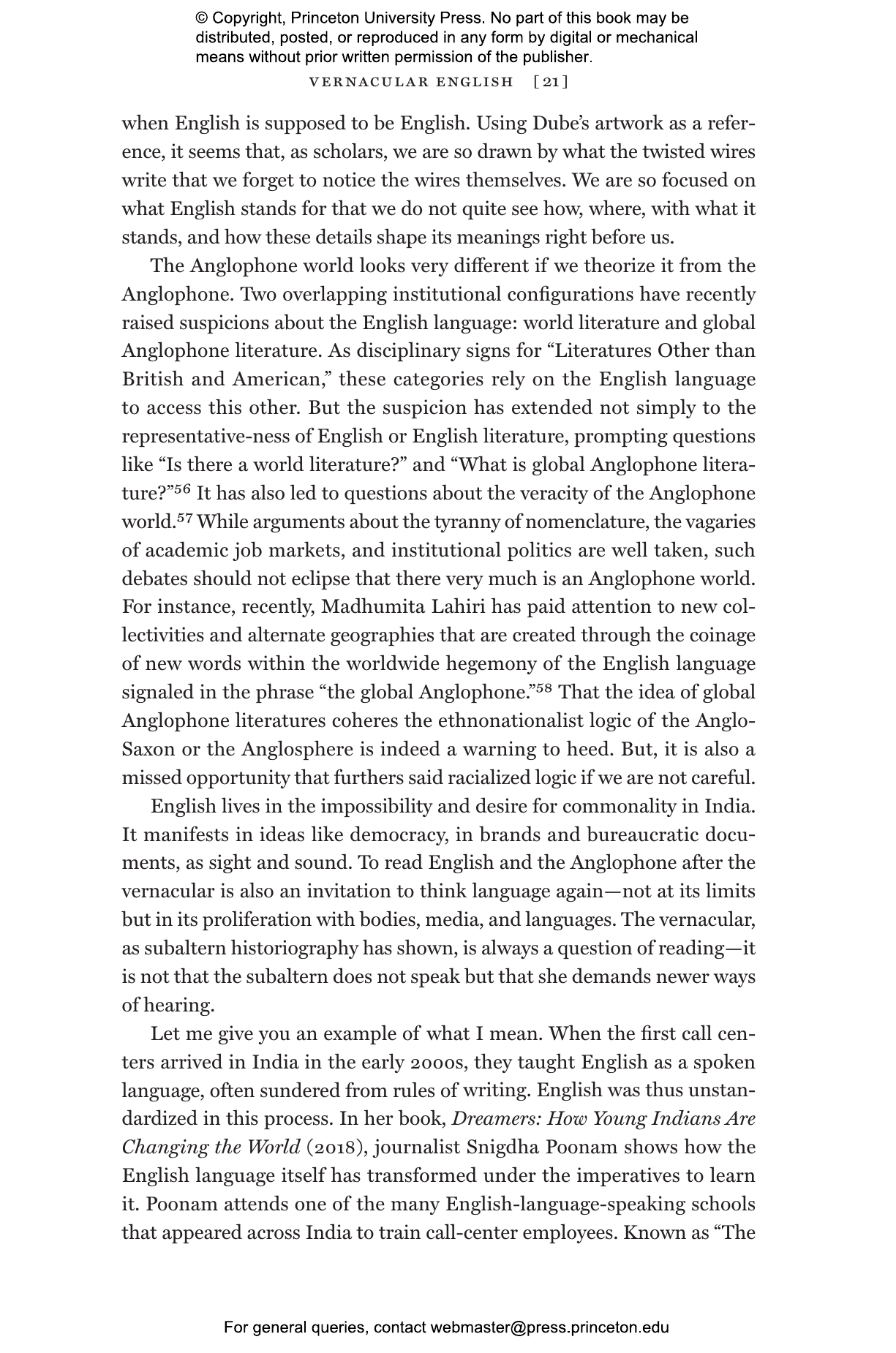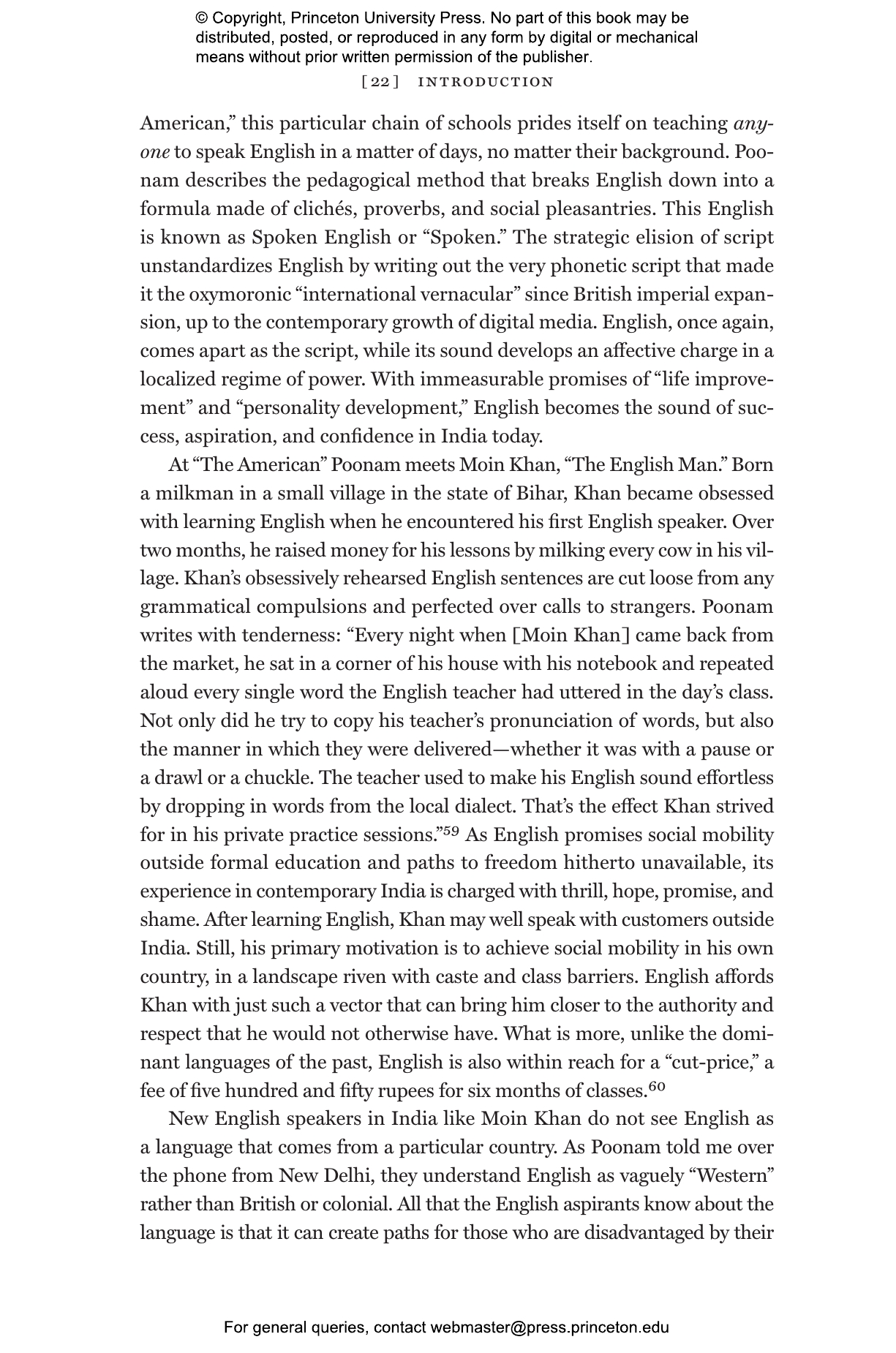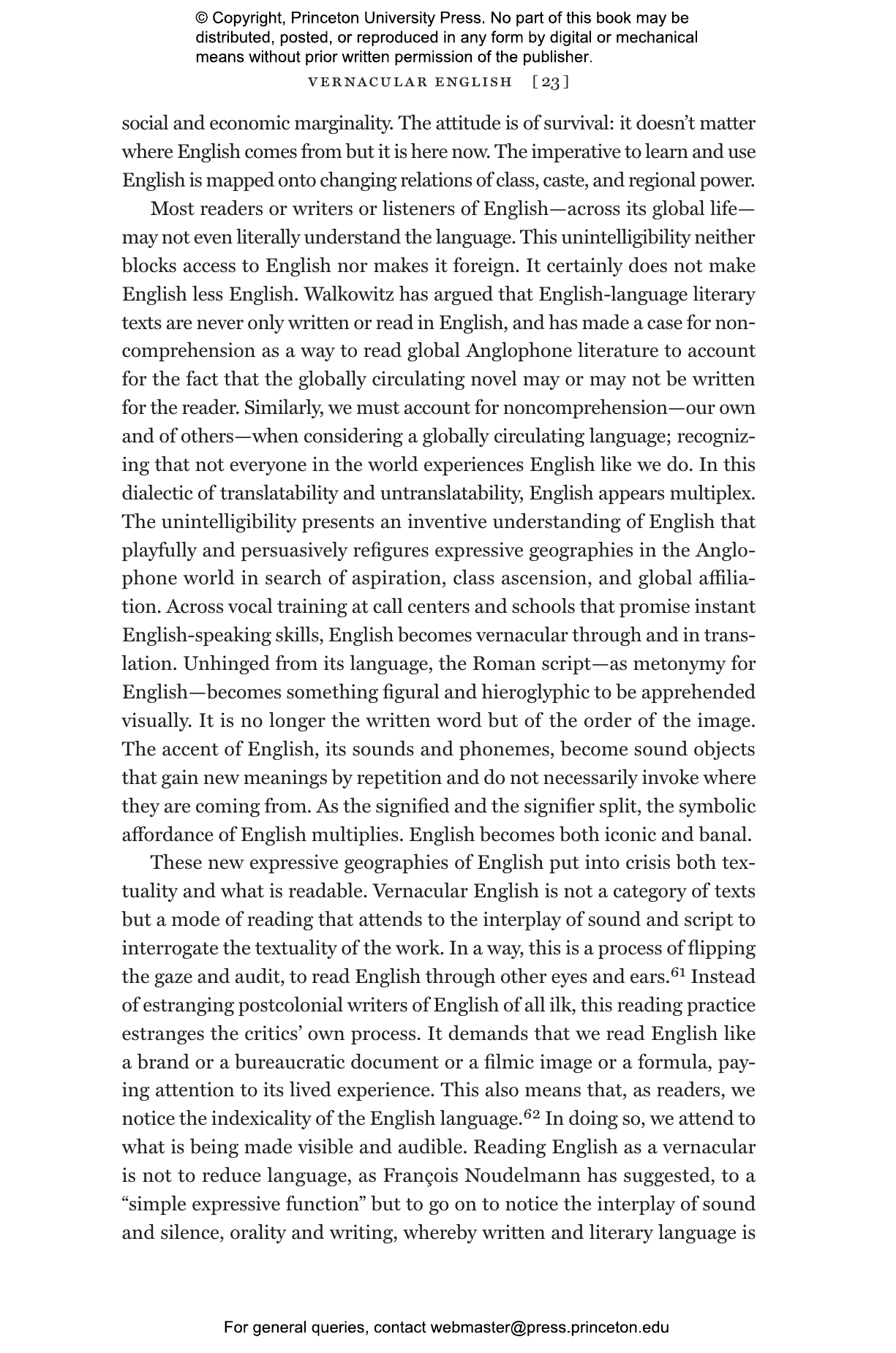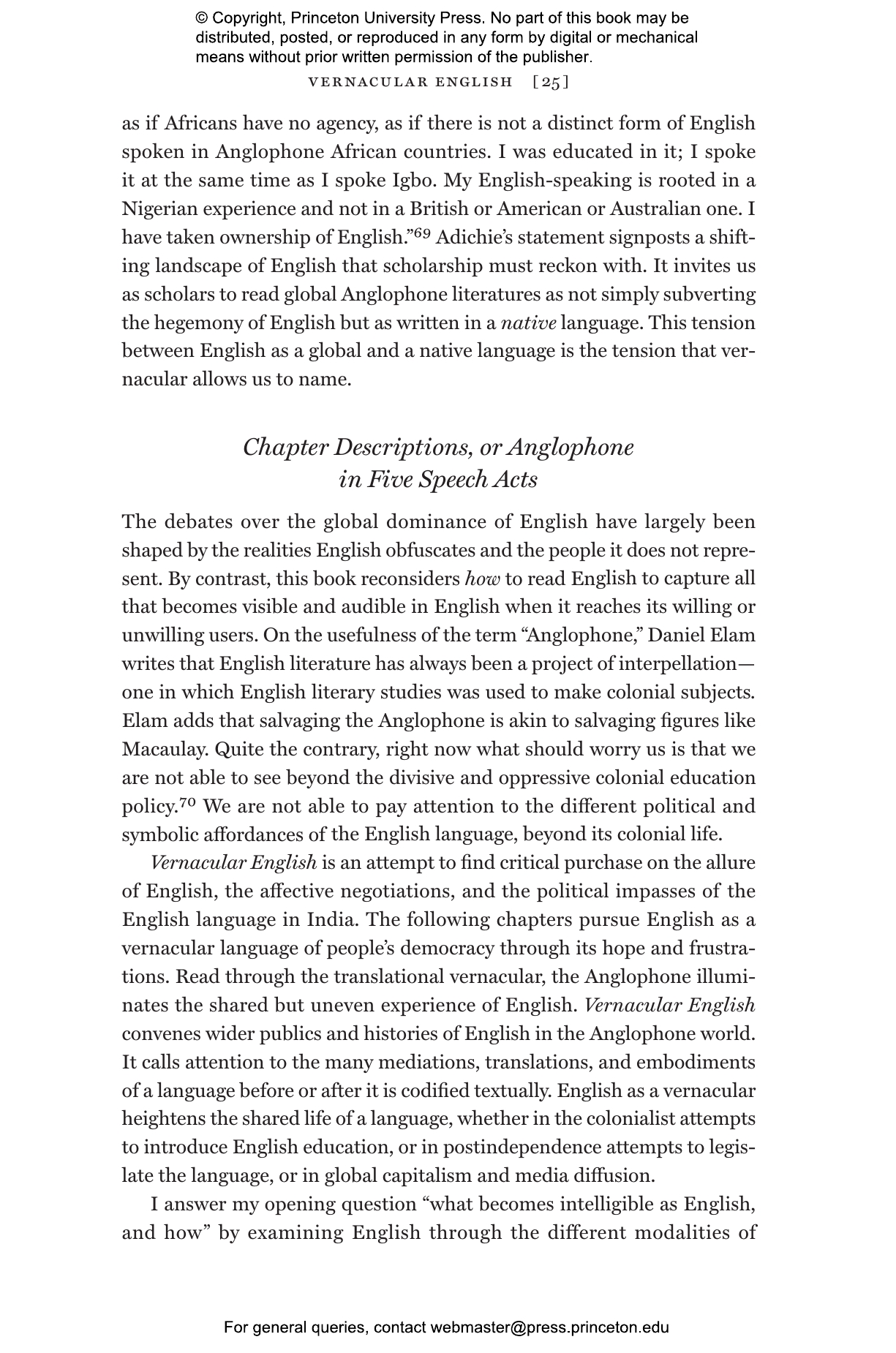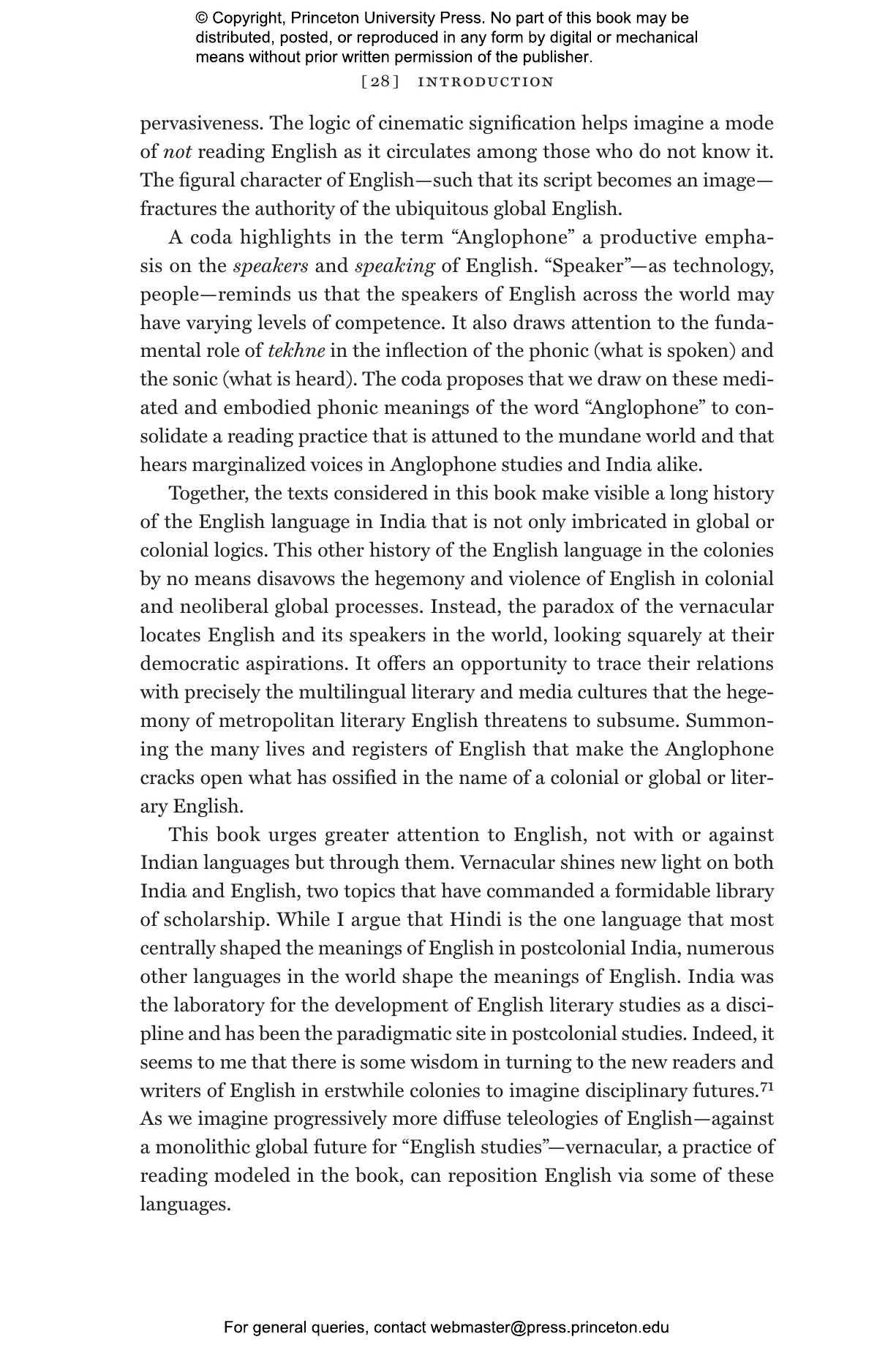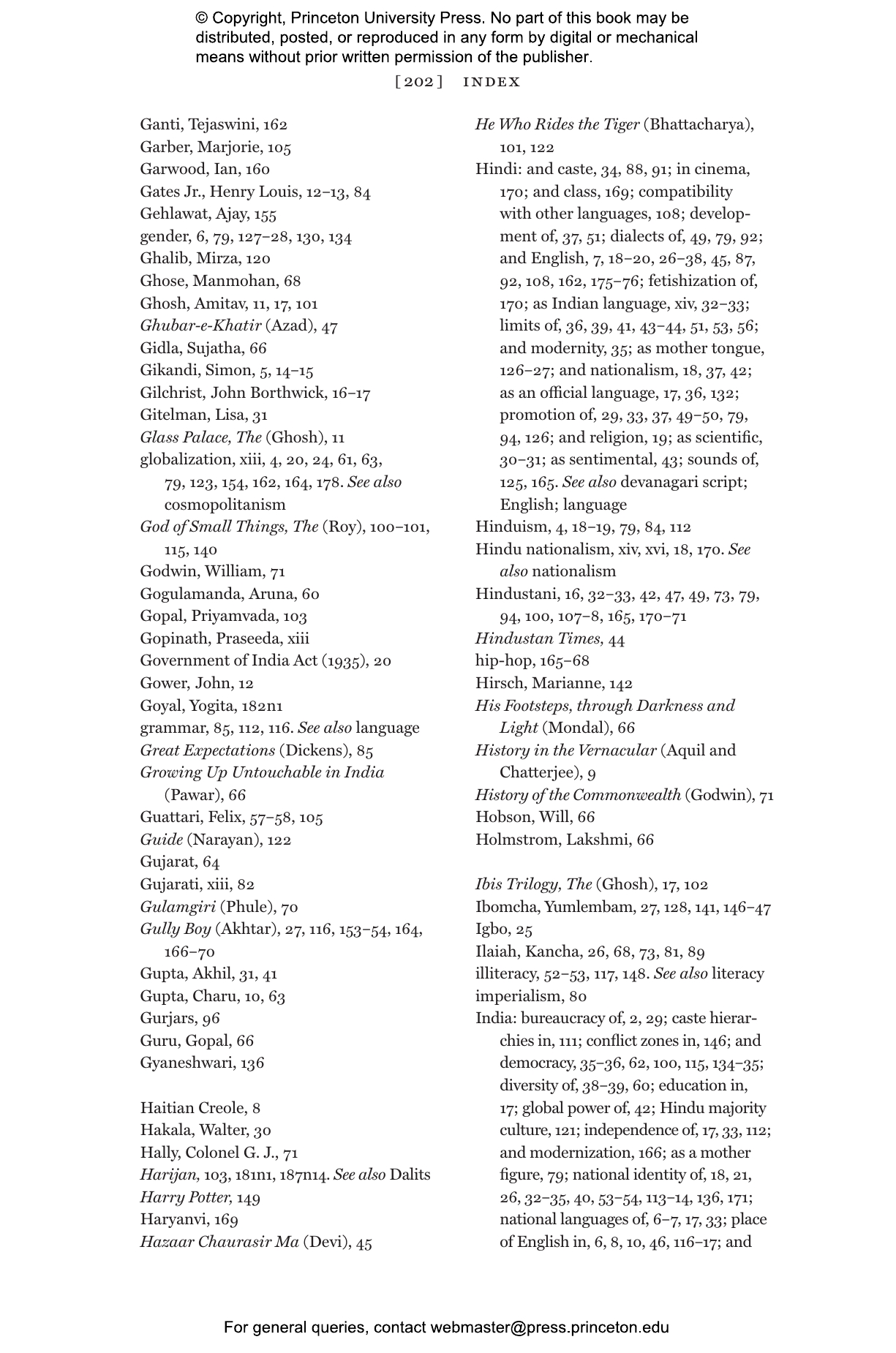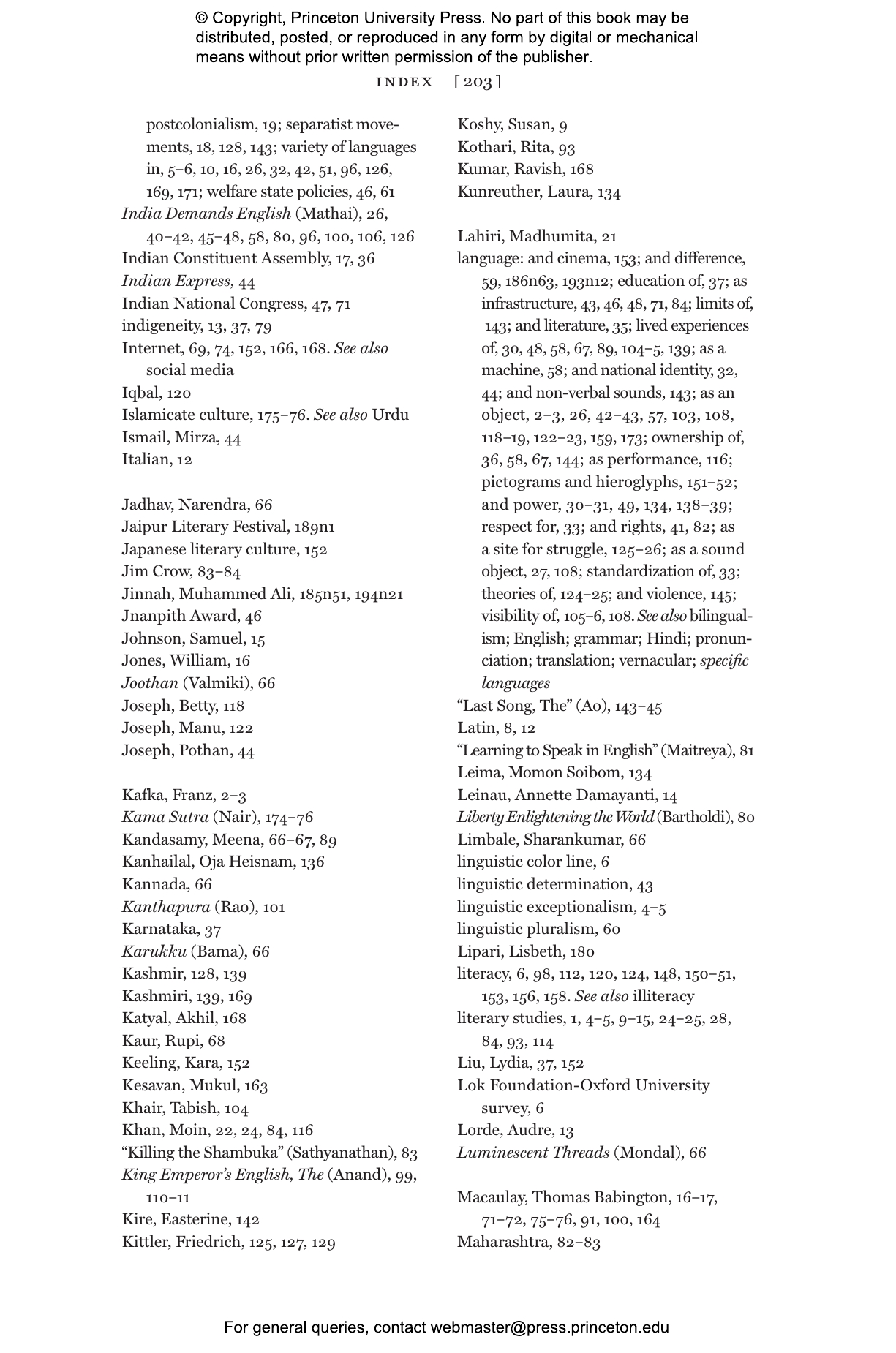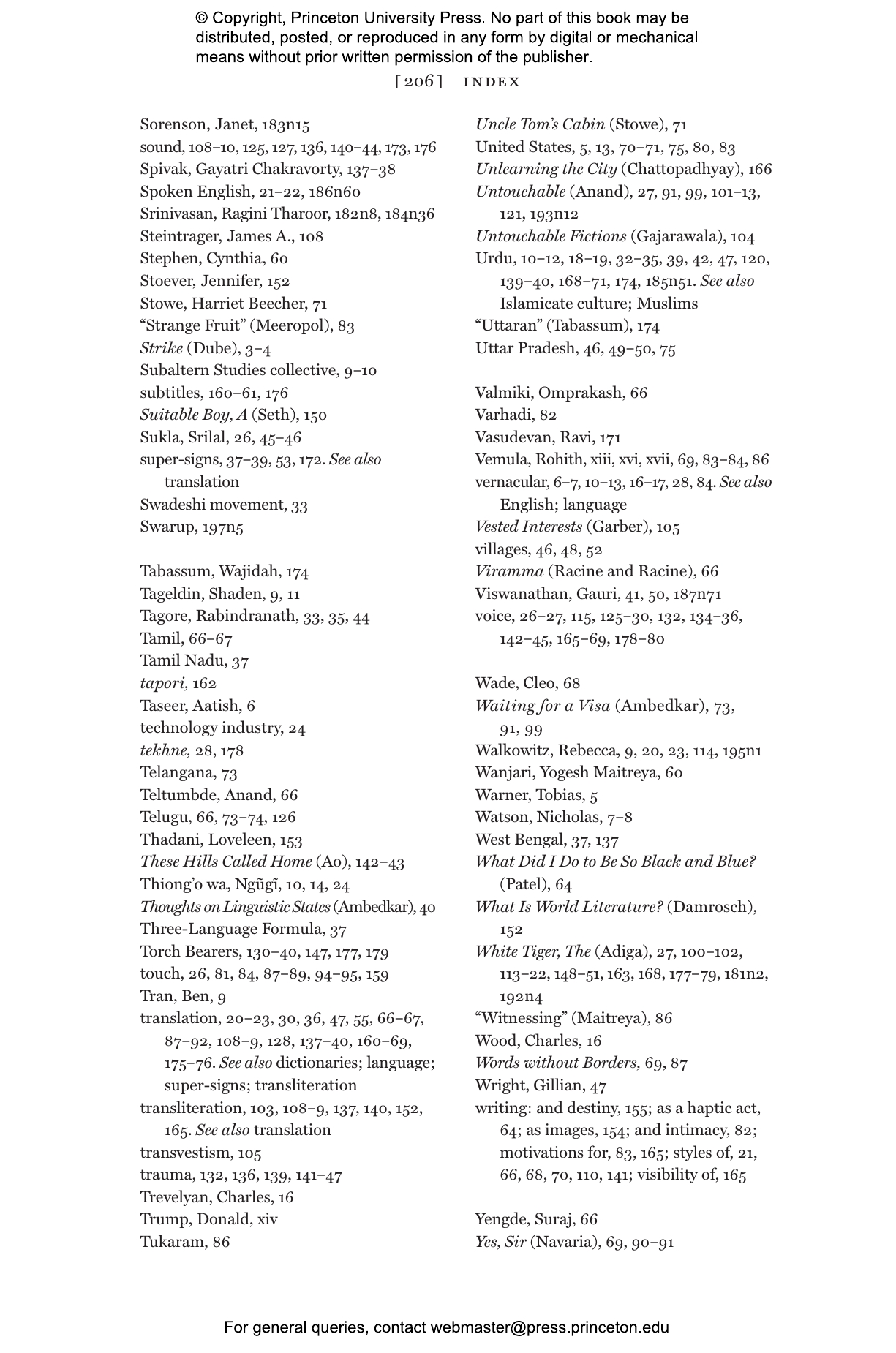Against a groundswell of critiques of global English, Vernacular English argues that literary studies are yet to confront the true political import of the English language in the world today. A comparative study of three centuries of English literature and media in India, this original and provocative book tells the story of English in India as a tale not of imperial coercion, but of a people’s language in a postcolonial democracy.
Focusing on experiences of hearing, touching, remembering, speaking, and seeing English, Akshya Saxena delves into a previously unexplored body of texts from English and Hindi literature, law, film, visual art, and public protests. She reveals little-known debates and practices that have shaped the meanings of English in India and the Anglophone world, including the overlooked history of the legislation of English in India. She also calls attention to how low castes and minority ethnic groups have routinely used this elite language to protest the Indian state.
Challenging prevailing conceptions of English as a vernacular and global lingua franca, Vernacular English does nothing less than reimagine what a language is and the categories used to analyze it.
Awards and Recognition
- Shortlisted for the ASAP Book Prize, Association for the Arts of the Present
- Winner of the First Book Prize, Modern Language Association
"In a country where English literature departments refer to all other Indian languages as 'vernacular'—or, tautologically, as 'bhasha,' for 'bhasha' means language—Saxena’s book is a necessary and significant counterpoint to this discourse, showing how the vernacularization of the English language has affected India’s political life. . . . Vernacular English is a timely, necessary, and original book."—Sumana Roy, Los Angeles Review of Books
"Saxena stretches out her net to bring in not just everyday Indians but all those assailed by a brutal state and needing a medium to express their pain."—Peggy Mohan, The Wire
"The focus on a vast and understudied archive, nuanced textual readings, and sustained attention to the sensory modes of engaging with language allows [Vernacular English] to prise open the political and affective terrains of English in India."—Navaneetha Mokkil, South Asia
"Saxena’s study of different domains toward the co-optation of English as an instrument of empowerment makes the concept of ‘Vernacular English’ a good alternative to the accepted mindset that English is a language of the elites in India."—Soni Wadhwa, Asian Review of Books
"One of the most fascinating studies on translation andextra-translational ways of perception. . . . Saxena succeeds to offer a relatively deeper and fresher view on theconstruction of the Anglophone that has lately become a homogenous term for global politics."—Ayan Chakraborty, Journal of Comparative Literature and Aesthetics
"A notable addition to existing historical, cultural, and literary scholarship that problematises the singularity of the English language and pays attention to the blurriness between the local and the global."—Shwetha Chandrashekhar, South Asian History and Culture
"Vernacular English . . . is crucial scholarship in the continuing resilience of the perspectives afforded by researching postcoloniality beyond the strict space-time of historical colonialism"—Saronik Bosu, Cambridge Journal of Postcolonial Inquiry
"Fortified by academic soundness, rich references and a peek into how women, like her own mother, use English, Saxena’s maiden attempt is a marvellous read for those who are intrigued by the status of English in India."—Vani Krishnan, South Asia Research
“This is a brilliant, compelling, and startlingly counterintuitive account of the vernacular life of English in a postcolonial society. Saxena’s book sparkles with insights on the afterlife of English as a popular, demotic, and multimediated tongue in contemporary India. Traversing effortlessly from political, legal, and activist discourses to Bollywood and Dalit literature, Vernacular English is an outstanding example of the decolonial turn in English Studies.”—Debjani Ganguly, University of Virginia
“With a wealth of seldom explored resources, Saxena tells the compelling story of how English becomes intelligible as an everyday object—a vernacular—in India. Challenging dominant assumptions about postcolonial, world, and Anglophone literatures, she offers instead an astutely caste-sensitive analysis of language as a contentious and polysemic experience. An excellent work.”—Rey Chow, Duke University
“This fascinating and original book moves beyond predictable analyses of English in India by reading the language not simply as a colonial residue or elitist register, but as a material, sonic, inscribed object that is invoked, contested, laid claim to, and decontextualized, resulting in myriad political possibilities.”—Ulka Anjaria, Brandeis University
